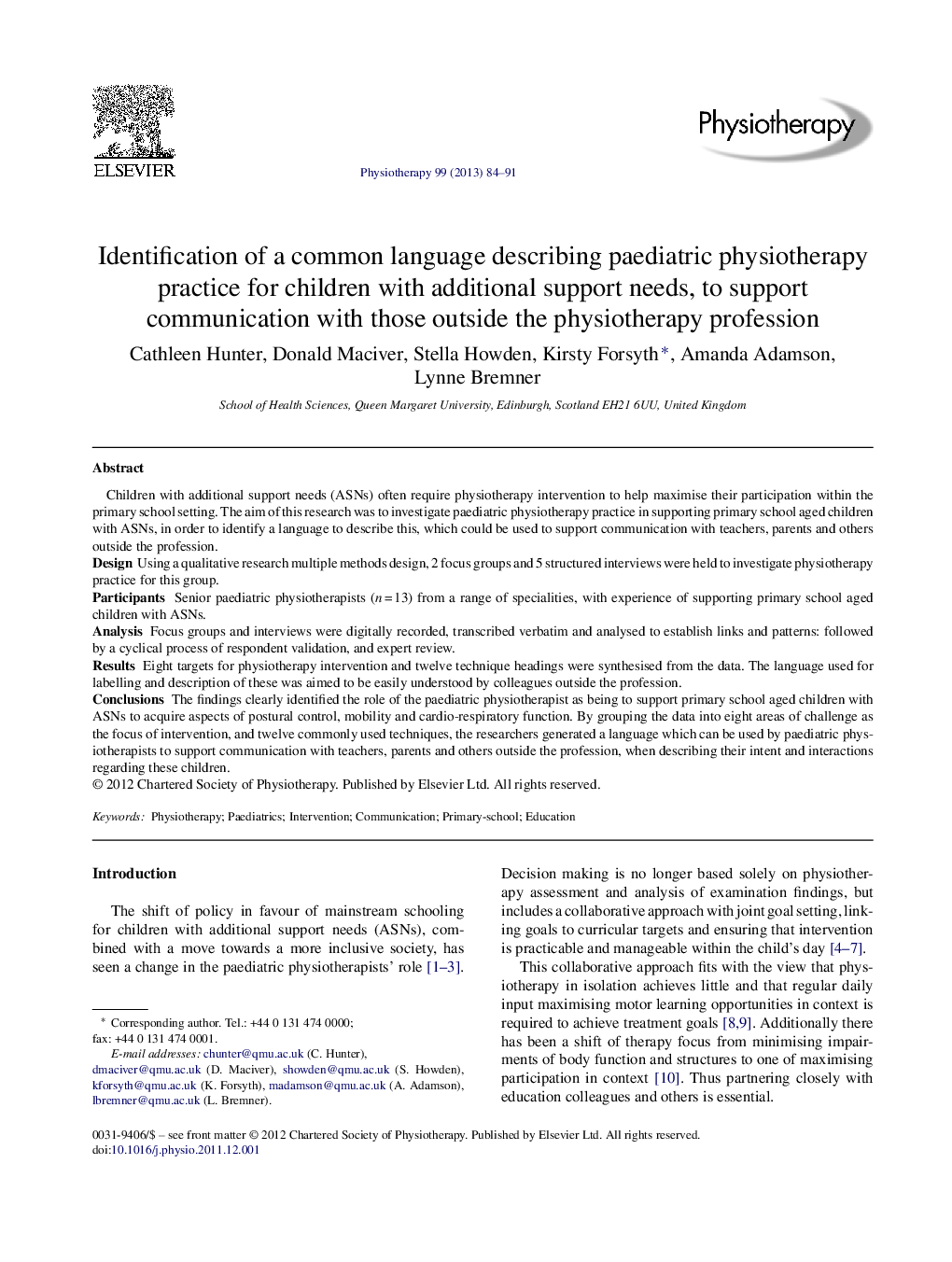| Article ID | Journal | Published Year | Pages | File Type |
|---|---|---|---|---|
| 2627255 | Physiotherapy | 2013 | 8 Pages |
Children with additional support needs (ASNs) often require physiotherapy intervention to help maximise their participation within the primary school setting. The aim of this research was to investigate paediatric physiotherapy practice in supporting primary school aged children with ASNs, in order to identify a language to describe this, which could be used to support communication with teachers, parents and others outside the profession.DesignUsing a qualitative research multiple methods design, 2 focus groups and 5 structured interviews were held to investigate physiotherapy practice for this group.ParticipantsSenior paediatric physiotherapists (n = 13) from a range of specialities, with experience of supporting primary school aged children with ASNs.AnalysisFocus groups and interviews were digitally recorded, transcribed verbatim and analysed to establish links and patterns: followed by a cyclical process of respondent validation, and expert review.ResultsEight targets for physiotherapy intervention and twelve technique headings were synthesised from the data. The language used for labelling and description of these was aimed to be easily understood by colleagues outside the profession.ConclusionsThe findings clearly identified the role of the paediatric physiotherapist as being to support primary school aged children with ASNs to acquire aspects of postural control, mobility and cardio-respiratory function. By grouping the data into eight areas of challenge as the focus of intervention, and twelve commonly used techniques, the researchers generated a language which can be used by paediatric physiotherapists to support communication with teachers, parents and others outside the profession, when describing their intent and interactions regarding these children.
